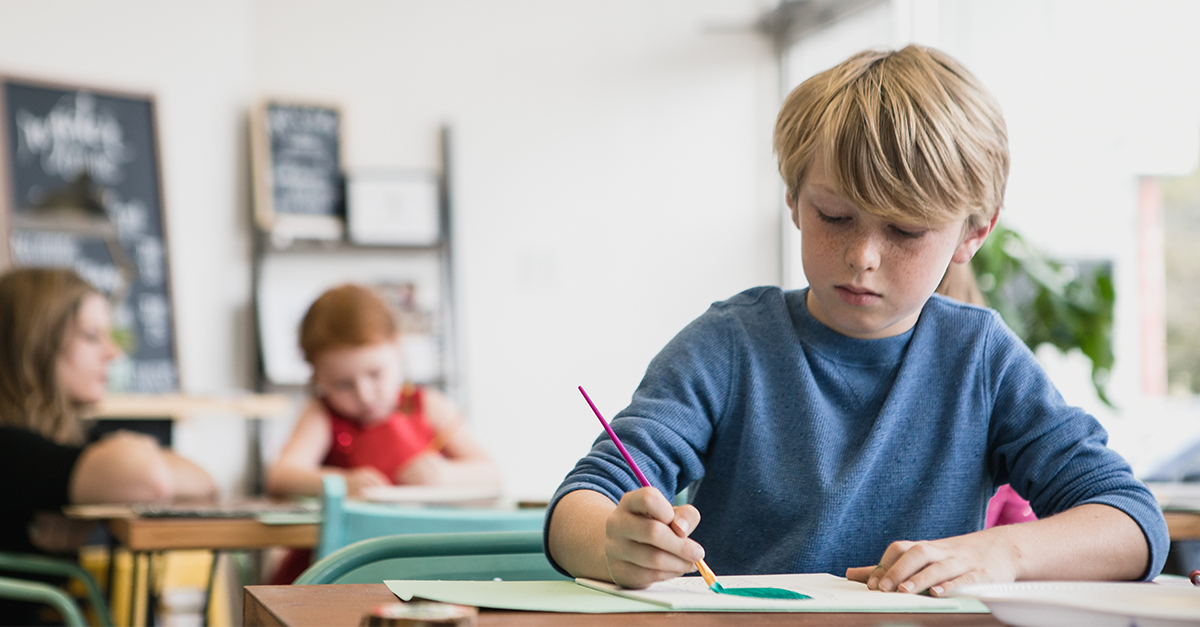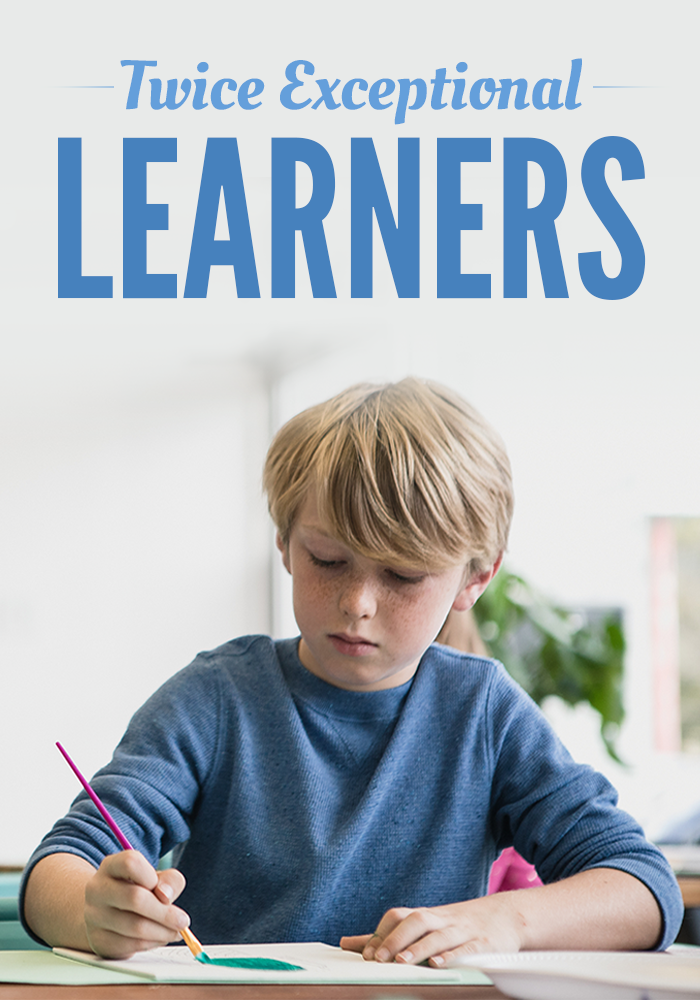Twice Exceptional Learners [New Research]

Scott Barry Kaufman grew up with an auditory processing disorder and high anxiety which made him struggle as a student. Kaufman was also a gifted student. Educators are accustomed to using mutually exclusive labels like “struggling learner” and “gifted learner” and mutually exclusive programs like “special education” and “gifted education.”
Kaufman’s story helps us recognize the problems with this kind of thinking. In an article for Scientific American, Kaufman writes of his experiences with a special education teacher who “saw beyond my label to some hidden strengths that were bursting to come out from deep within me.” His teacher encouraged him to sign up for more challenging questions and to participate in extracurricular activities. Kaufman continued to flourish as a student and today he has a Yale PhD in cognitive psychology; his research is designed to broaden our understanding of intelligence and to advocate for other twice-exceptional students.
What Does Twice Exceptional Mean?
Twice exceptional, or 2e, is a relatively new term in the world of education. 2e students are gifted learners who face one or more learning difficulties. Kaufman explains that 2e students “demonstrate exceptional levels of capacity, competence, commitment, or creativity in one or more domains coupled with one or more learning difficulties.” These students can often fly under the radar because the interplay of ability and disability can be complex. Kaufman writes:
Their exceptional potentialities may dominate, hiding their disability; their disability may dominate, hiding their exceptional potentialities; each may mask the other so that neither is recognized or addressed.
New Research About Twice Exceptional Learners
Kaufman’s new book, Twice Exceptional: Supporting and Educating Bright and Creative Students with Learning Difficulties, is designed to help educators identify 2e students and support them in their education. Kaufman writes:
Viewing the 2e student as neither exclusively disabled nor exclusively gifted, but, rather, as a dynamic interaction of both, leading experts offer holistic insight into identification, social-emotional development, advocacy, and support for 2e students.
Kaufman’s research on intelligence highlights the importance of personalized education. He explains that we need to shift from “an educational model that compares children to each other on a single dimension (e.g., IQ, academic performance) to an appreciation of the whole child, which includes a unique pattern of strengths and weaknesses, but also recognizes the importance of ability, engagement, and personal goals working together and changing over time.” In other words, rather than forcing students into preexisting boxes, we need to customize education to meet the needs of the student.
Demme Learning believes in the power of individualized education. That’s why our products are designed to support every kind of student at each stage in their learning. And we’ve heard countless stories of all kinds of students excelling with our math and spelling programs. For example, here’s an in-depth article about how Math-U-See can benefit dyslexic learners.
And here’s the story of William, who used Math-U-See, and credits the curriculum with preparing him to flourish as a math major in college who plans on pursuing his doctorate.
